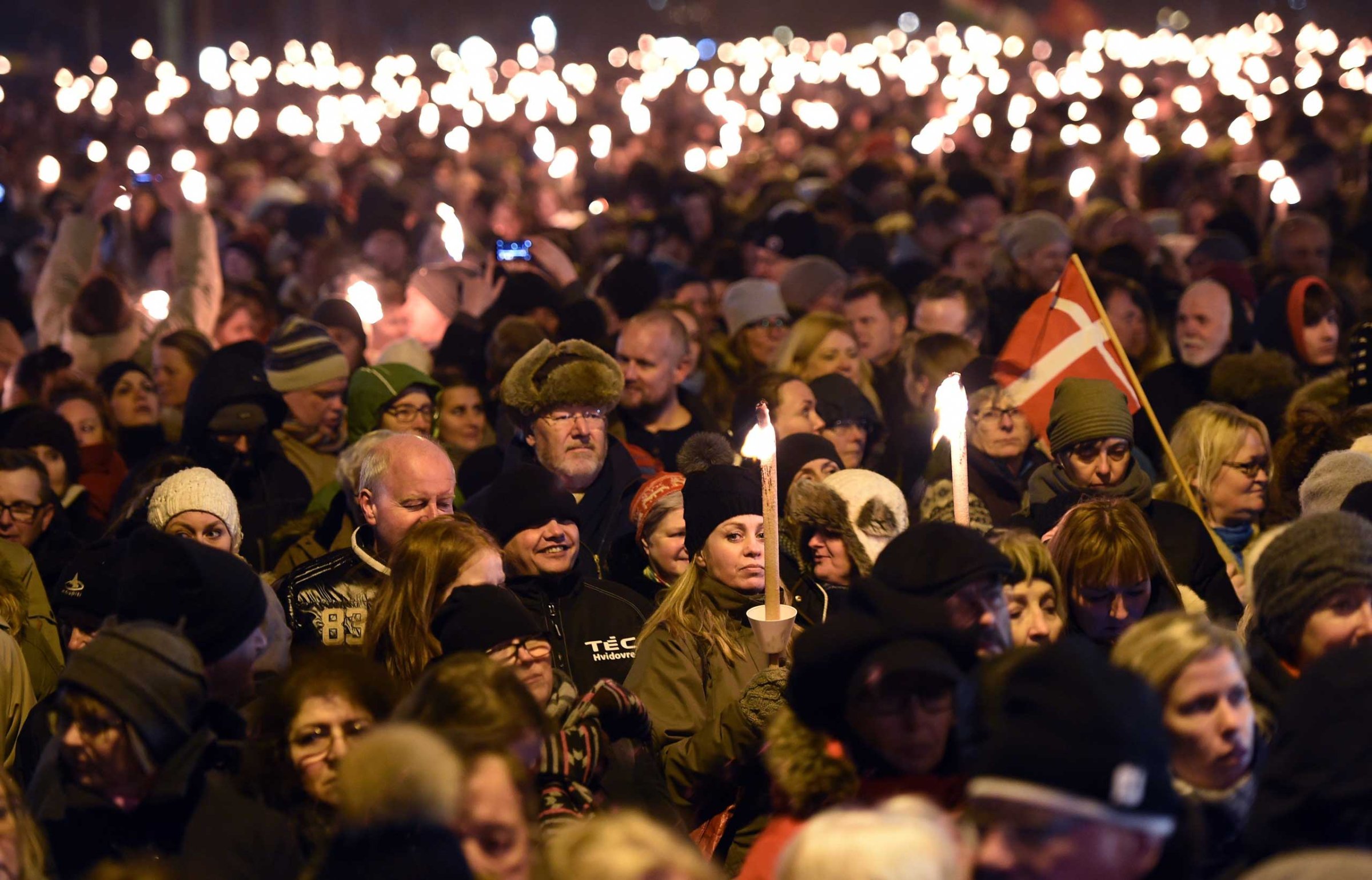
Denmark will do everything it can to protect Jews, said its Prime Minister Helle Thorning-Schmidt to reporters Monday. But across town, the thousands of bouquets that had been laid at the gates of a synagogue where a gunman killed a Jewish man over the weekend were a painful reminder that they hadn’t been protected enough. Here and across Europe, the attack added to a growing fear among Jews that the continent was once again not safe for them.
About 80 people were celebrating a bar mitzvah at the synagogue on the central Copenhagen street of Krystalgade in the early hours of Feb. 15 when Omar Abdel Hamid El-Hussein shot and killed synagogue member Dan Uzan, who was guarding the entrance to the building. Earlier El-Hussein had killed one and injured three at a meeting on freedom of expression organized by Lars Vilks, a cartoonist who had depicted the Prophet Muhammad as a dog.
Coming so soon after a similar attack in Paris, in which two gunmen killed cartoonists and editors at the offices of satirical magazine Charlie Hebdo, while another killed five in two other incidents, the Copenhagen events have sharply undermined the small Danish Jewish community’s already deteriorating sense of security.
“It’s terrifying,” says Marianne Isaksen, a member of the congregation where Dan Uzan was killed. She and her husband Alf, both in their 70s, knew Uzan, and had come out to Krystalgade to commiserate with other synagogue members and pay their respects. “We knew things were getting worse, but we never thought it could happen here.”
Scenes of the Aftermath of the Copenhagen Attacks
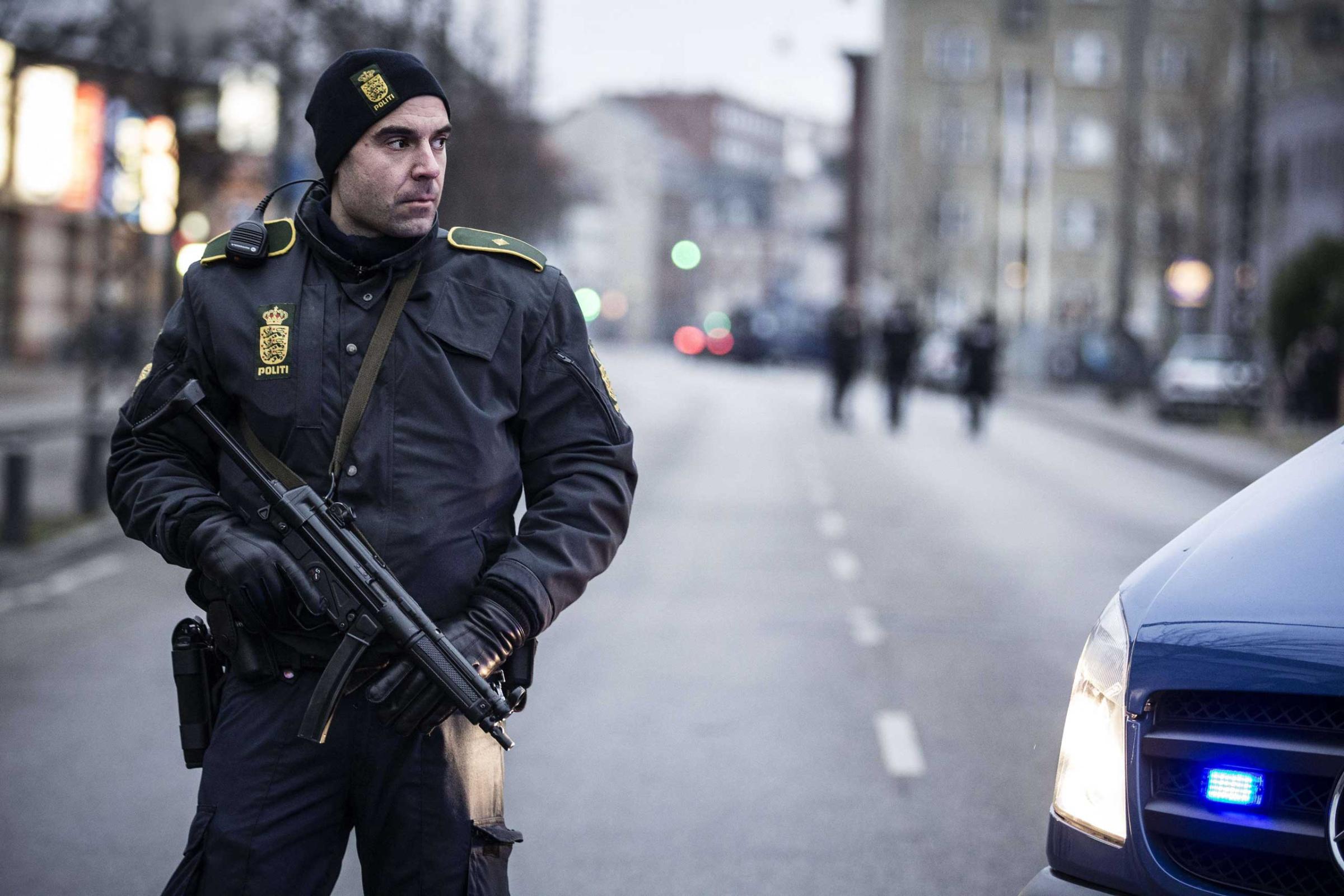
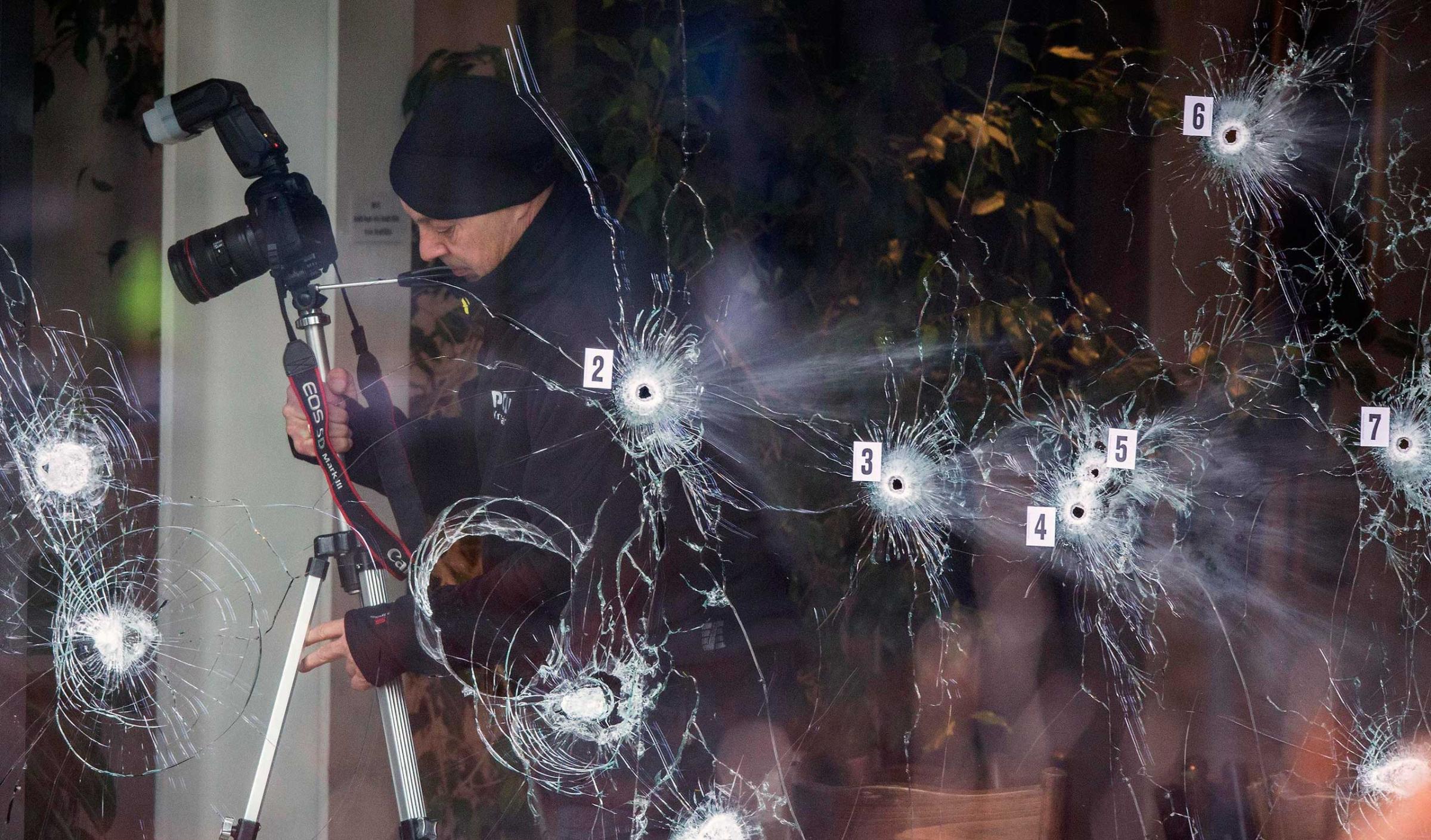
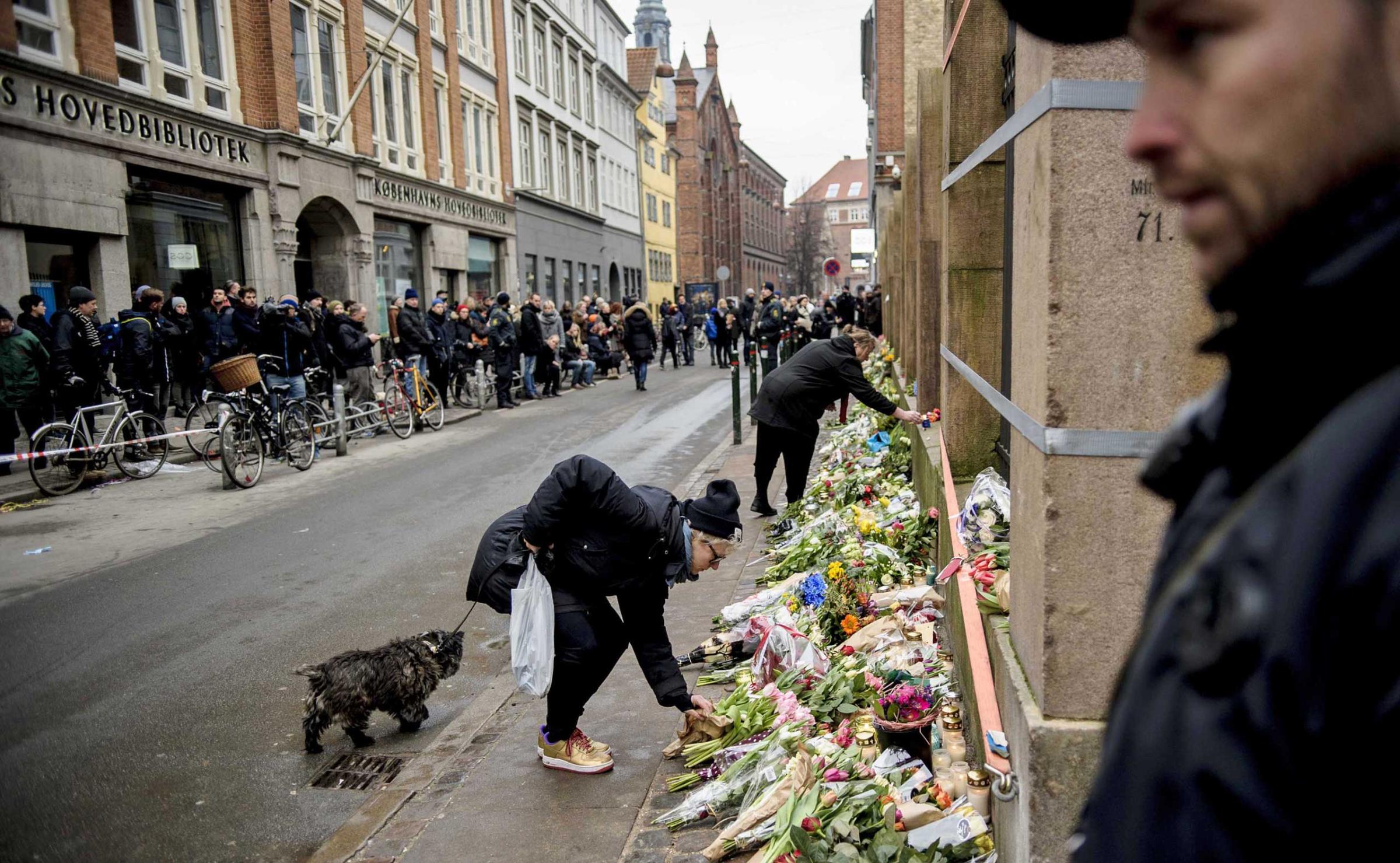
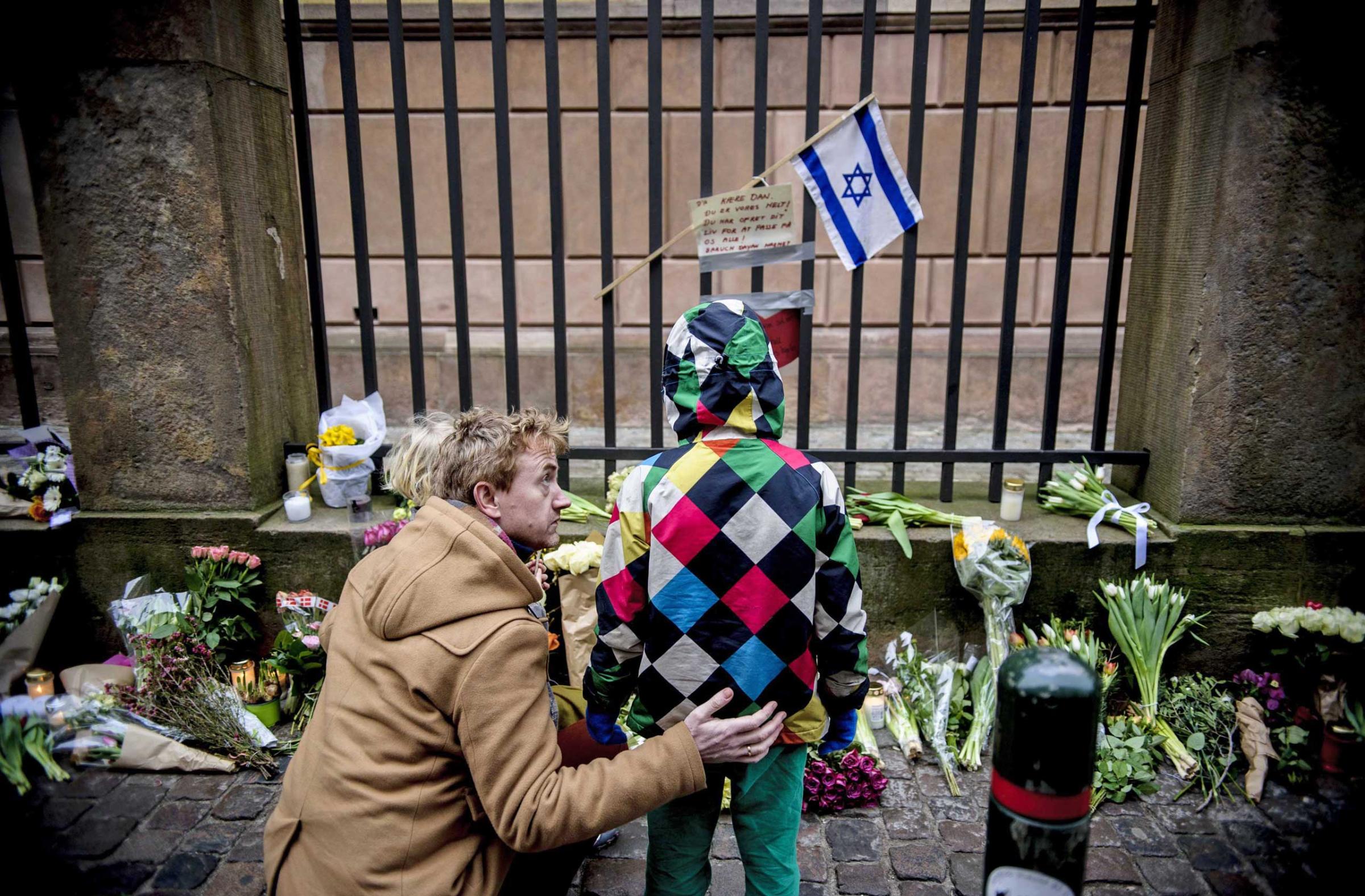
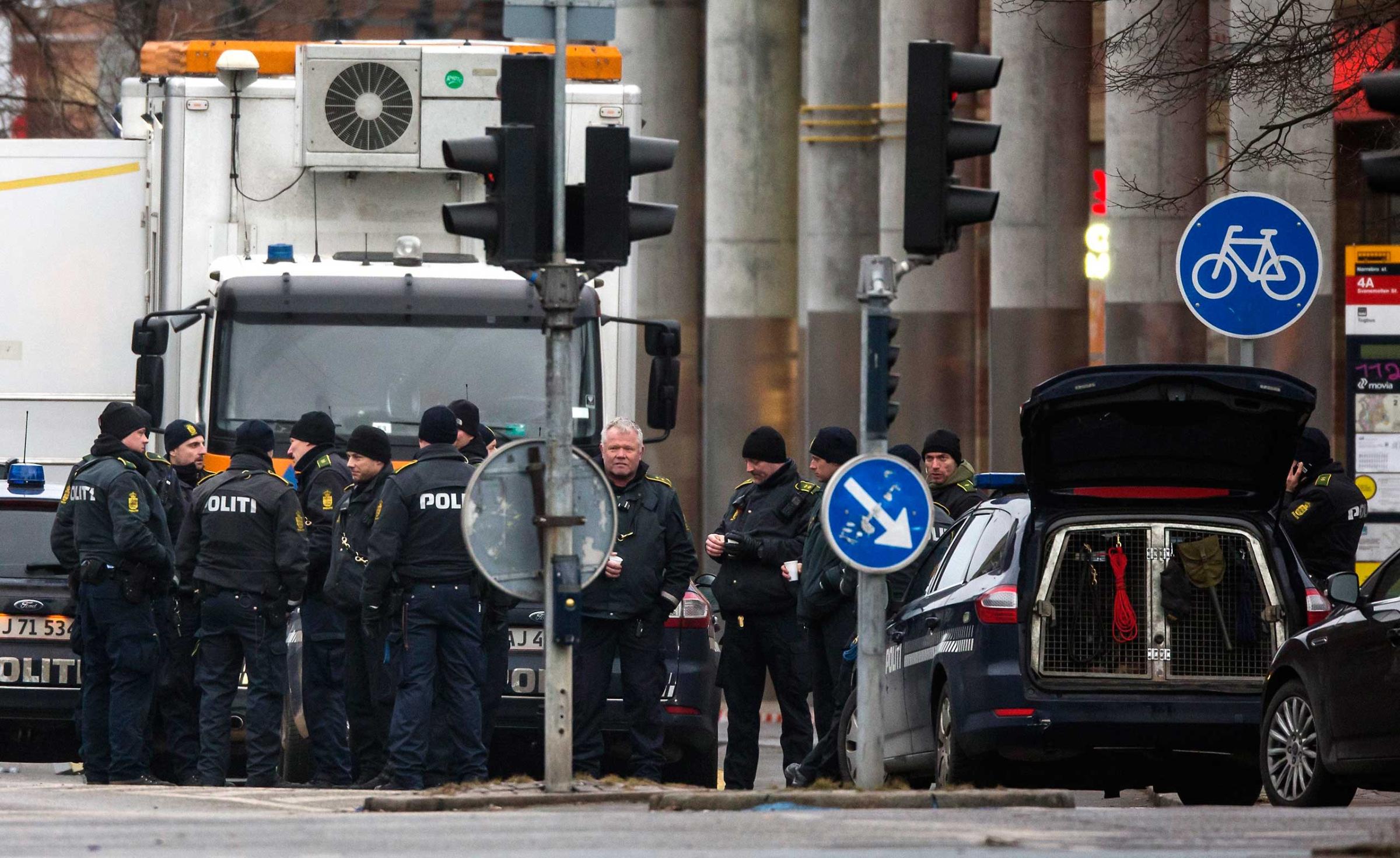
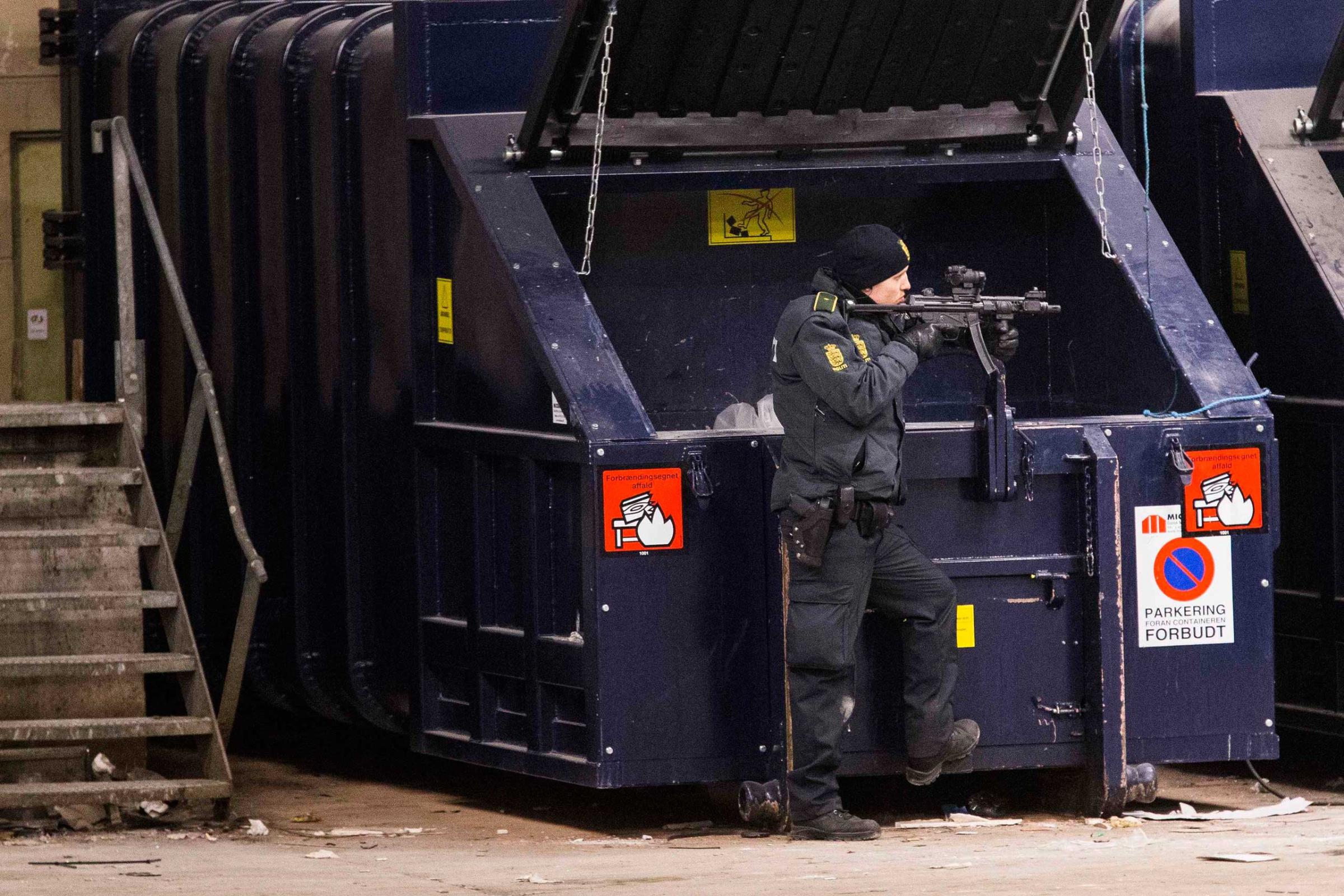
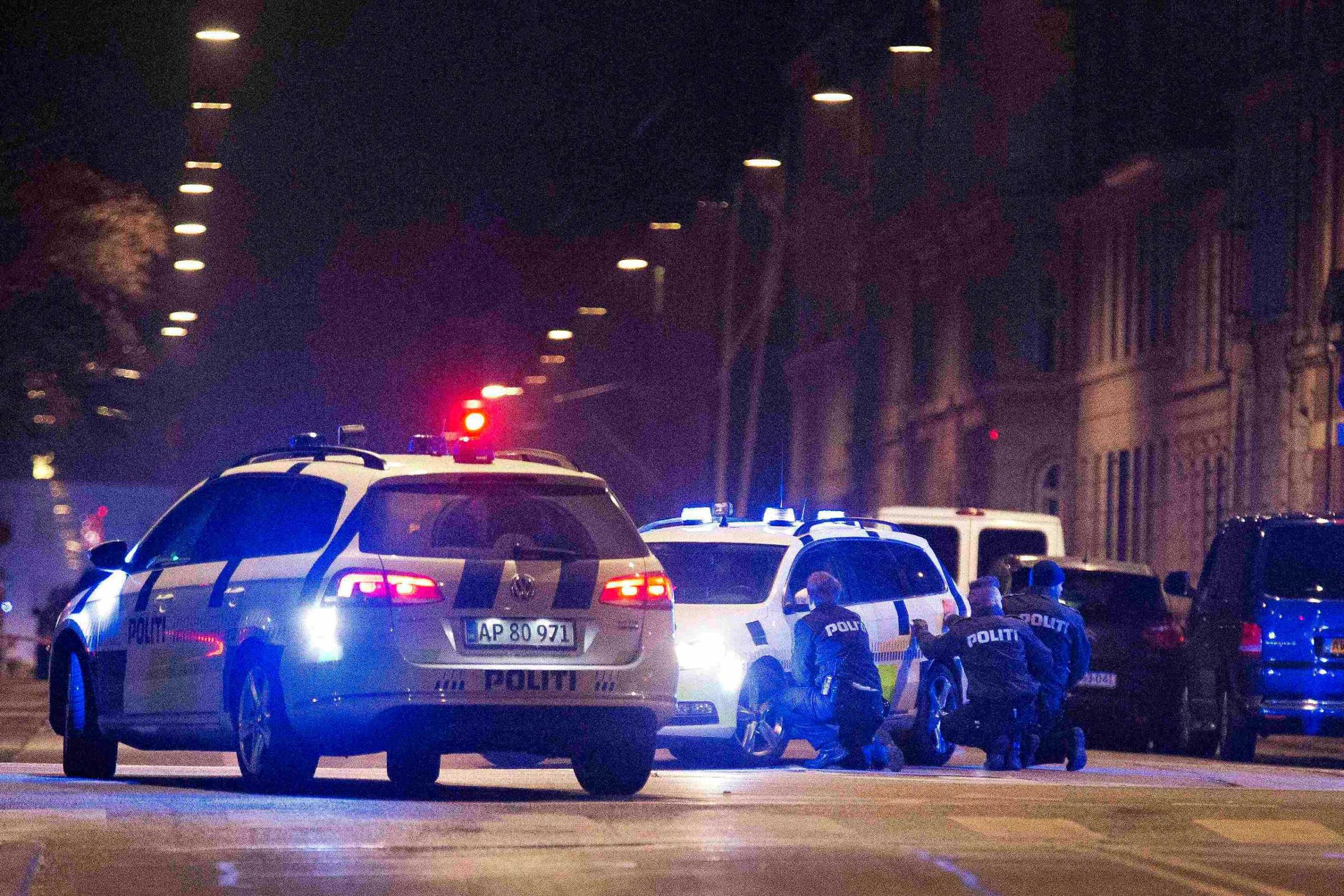

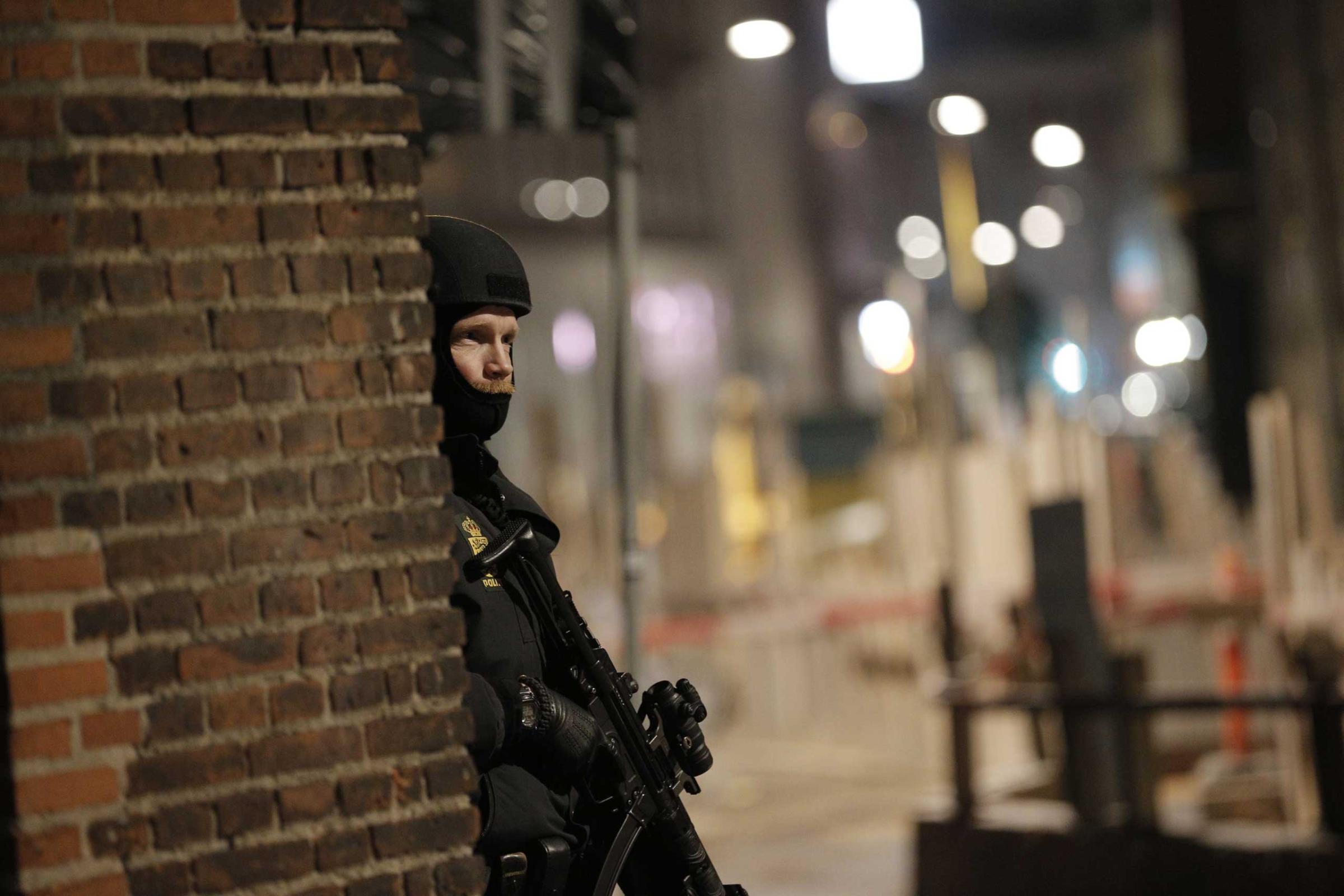
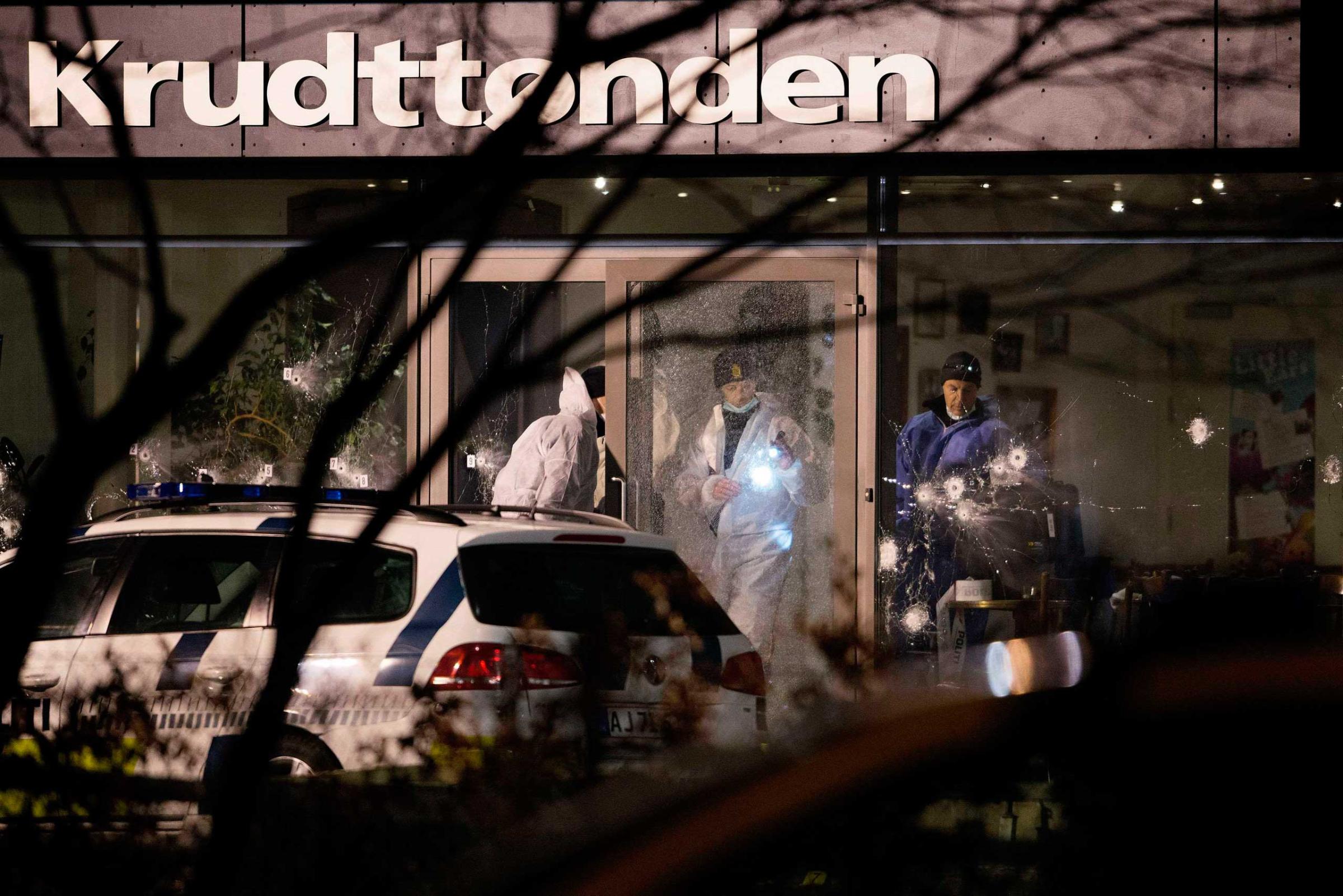
And yet increasingly, it does happen throughout Europe. Across the continent, anti-Semitic incidents are on the rise. On Sunday, hundreds of Jewish tombs were desecrated in the town of Sarre-Union in eastern France. Last July during the Gaza war, eight French synagogues were vandalized or petrol-bombed among many other similar incidents across Europe.
Many Jews do not consider themselves safe in Europe. A 2013 survey of Jewish communities in eight European Union states (Belgium, France, Germany, Hungary, Italy, Latvia, Sweden and the U.K.) carried out by the E.U.’s Fundamental Rights Agency found that over three-quarters of respondents believed anti-Semitism had increased in their country over the past five years. Nearly a third had considered emigrating from Europe because they did not feel safe as a Jew, with the figure reaching between 40% and 48% in Hungary, France and Belgium.
Those concerns can be felt throughout the E.U.’s population of 1.1 million Jews. In the small French town of Eze, freelance writer Clara Kagan keeps her Judaism to herself. “I would never feel safe in Paris or in my village wearing my Jewish star,” she says. “When I go to America, I wear it but I have only worn it once or twice in France and felt I was being looked at so I stopped.”
The same fears are echoed, if more fiercely, by Linda Ban, the wife of a rabbi in Budapest, where the Jobbik party went as far as to call for the drawing up of a list of Jews in 2012 (the Jobbik member of parliament later amended his call to focus only on those Jews who hold double Israeli-Hungarian citizenship). “In Hungary, people find open anti-Semitism in the media, so they think they can say the same things. People think if they can say it on the radio or on the floor of parliament, so can I. I’m not sure if there’s more anti-Semitism now than there was ten years ago, but it’s definitely louder. The taboo has been broken.”
The unease is felt across Europe. “I would say that it is very hard for Jews to live in Europe today,” says Arie Zuckerman, special adviser to the president of the European Jewish Congress. “I would not be so extreme as to say it’s starting to be impossible, but it is very hard. Jews are thinking twice before going to the synagogue on Saturday, and though it’s better in London, we hear it a lot from Jews in France, which has the biggest Jewish community in Europe. And definitely in Belgium, and definitely in the Scandinavian countries. Jews don’t feel comfortable to be identified as Jews in the streets.”
Israeli Prime Minister Benjamin Netanyahu took advantage of those fears to address Europe’s Jews in a statement on the Copenhagen attacks. “This wave of terror attacks can be expected to continue, including anti-Semitic and murderous attacks. We say to the Jews, to our brothers and sisters, Israel is your home and that of every Jew. Israel is waiting for you with open arms.”
Denmark’s chief rabbi, Jair Melchior, objected to Netanyahu’s remarks, telling the press on Feb. 15 that “terror is not a reason to move to Israel. People from Denmark move to Israel because they love Israel, because of Zionism, but not because of terrorism. If the way we deal with terror is to run somewhere else, we should all run to a deserted island.”
But more and more, Jews in other countries are weighing their options. In 2014, 7,000 of France’s roughly 500,000 Jews moved to Israel, double the number of the previous year. According to the Jewish Agency, immigration to Israel from Western Europe as a whole is up 88%; 620 of those immigrants came from the U.K., a 20% increase.
Paris Terror Attacks: One Tense, Mournful Week in Photos
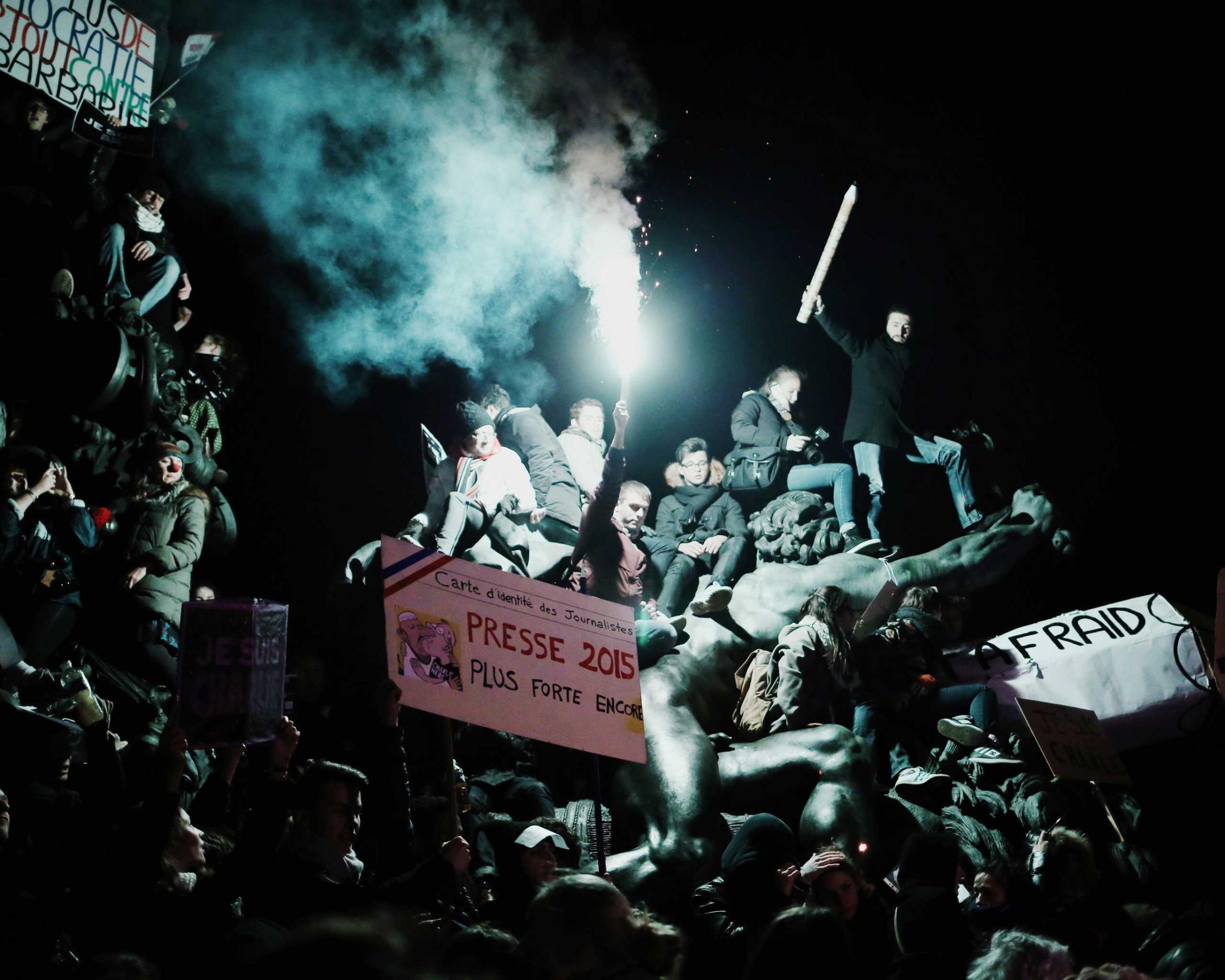
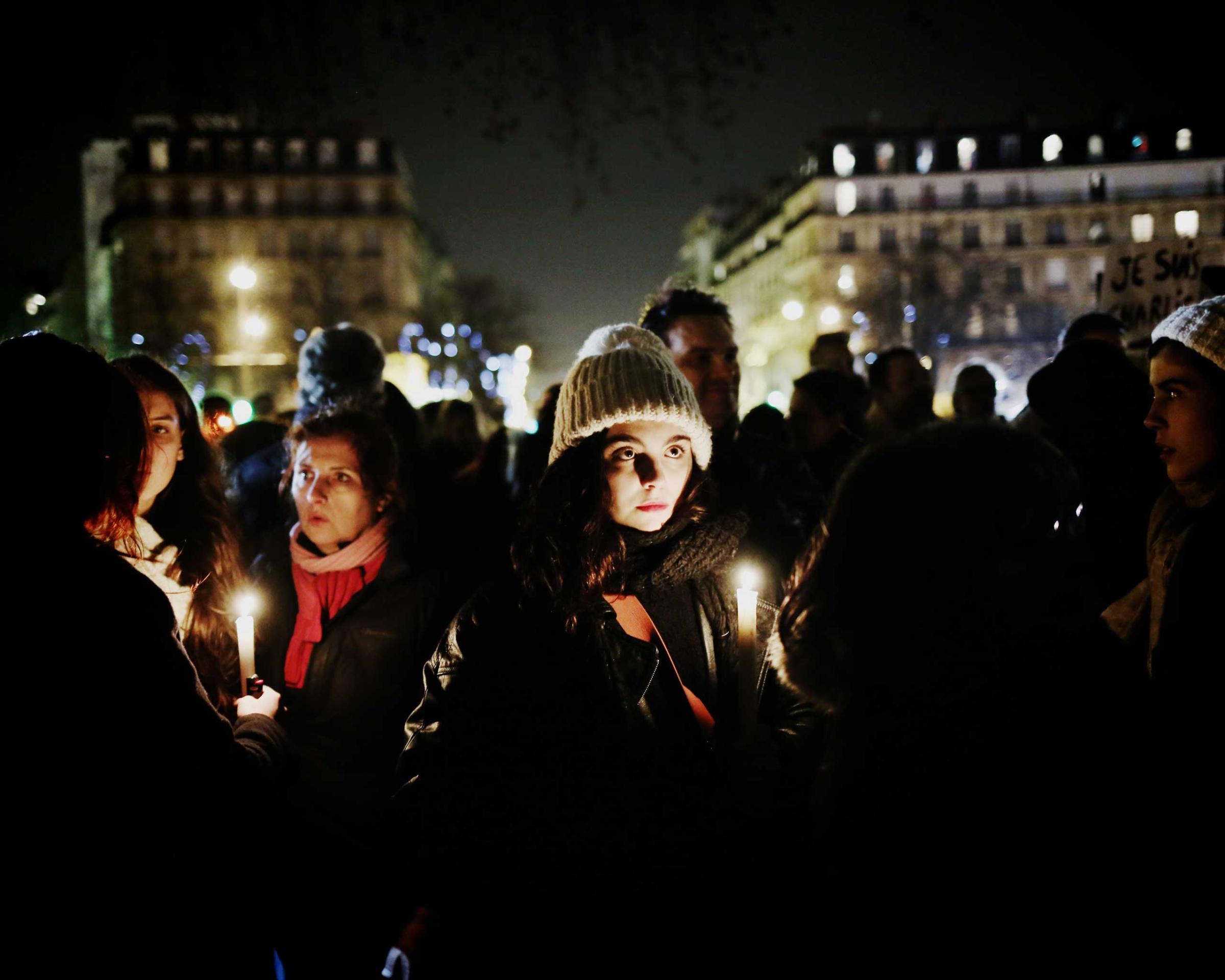
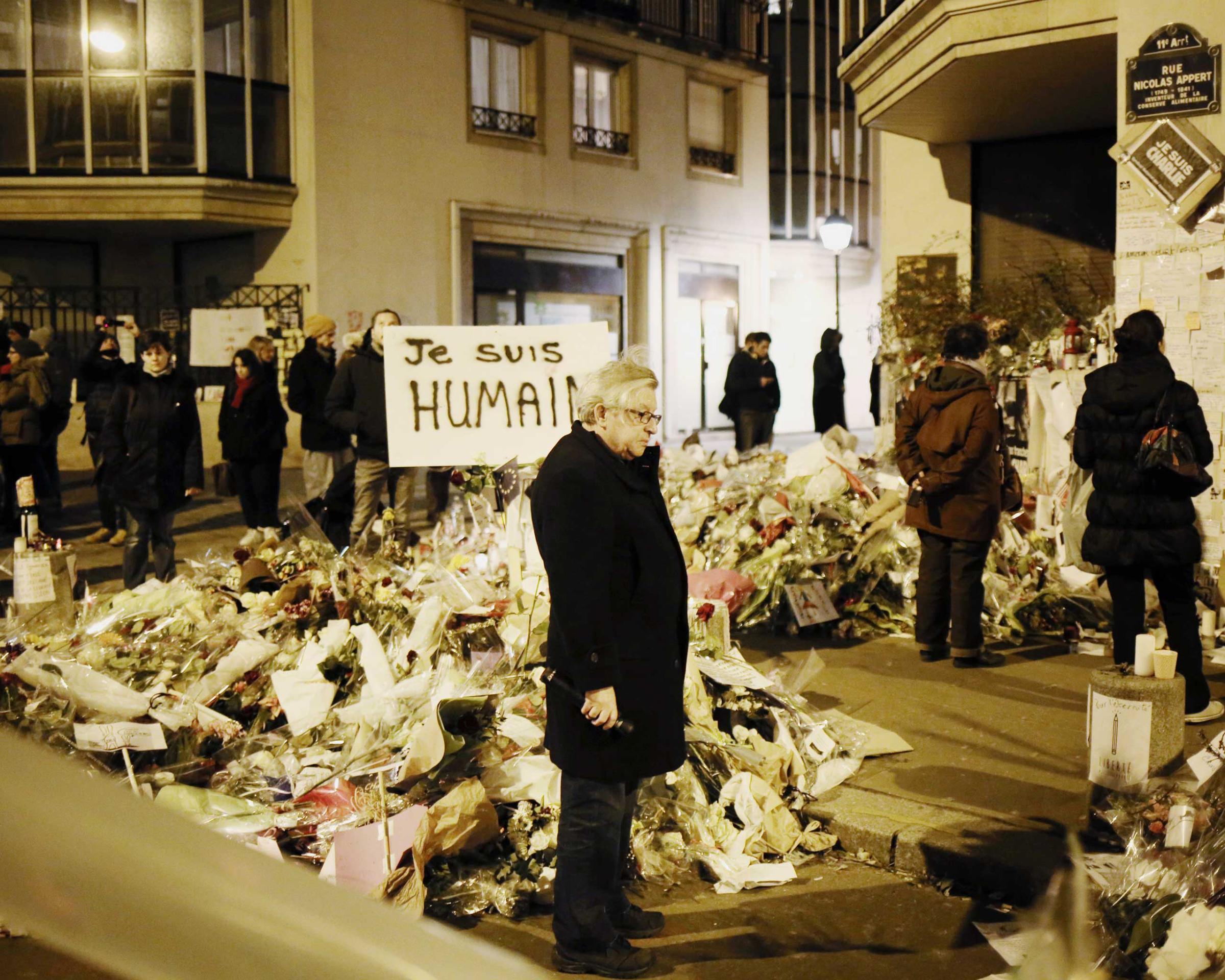
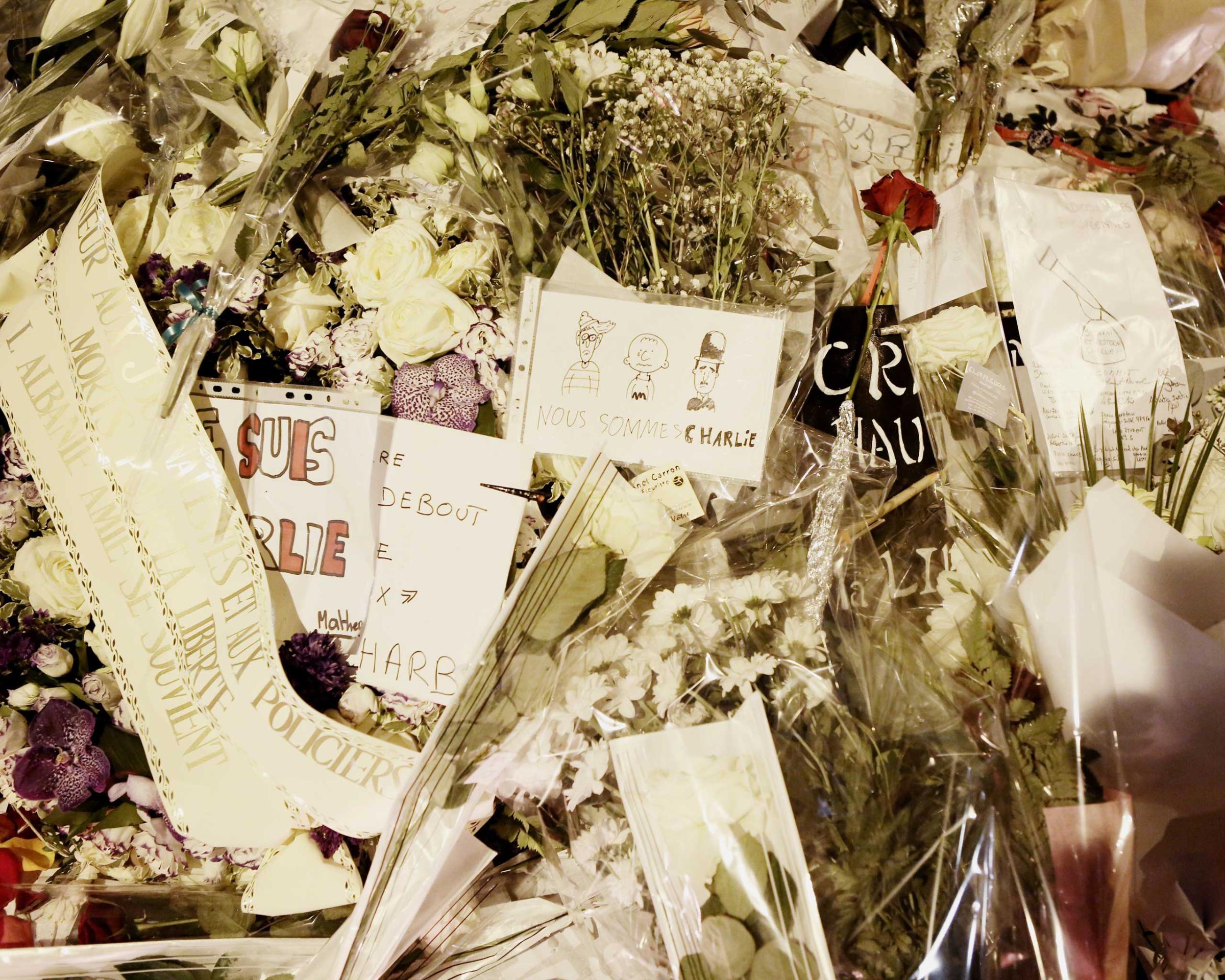
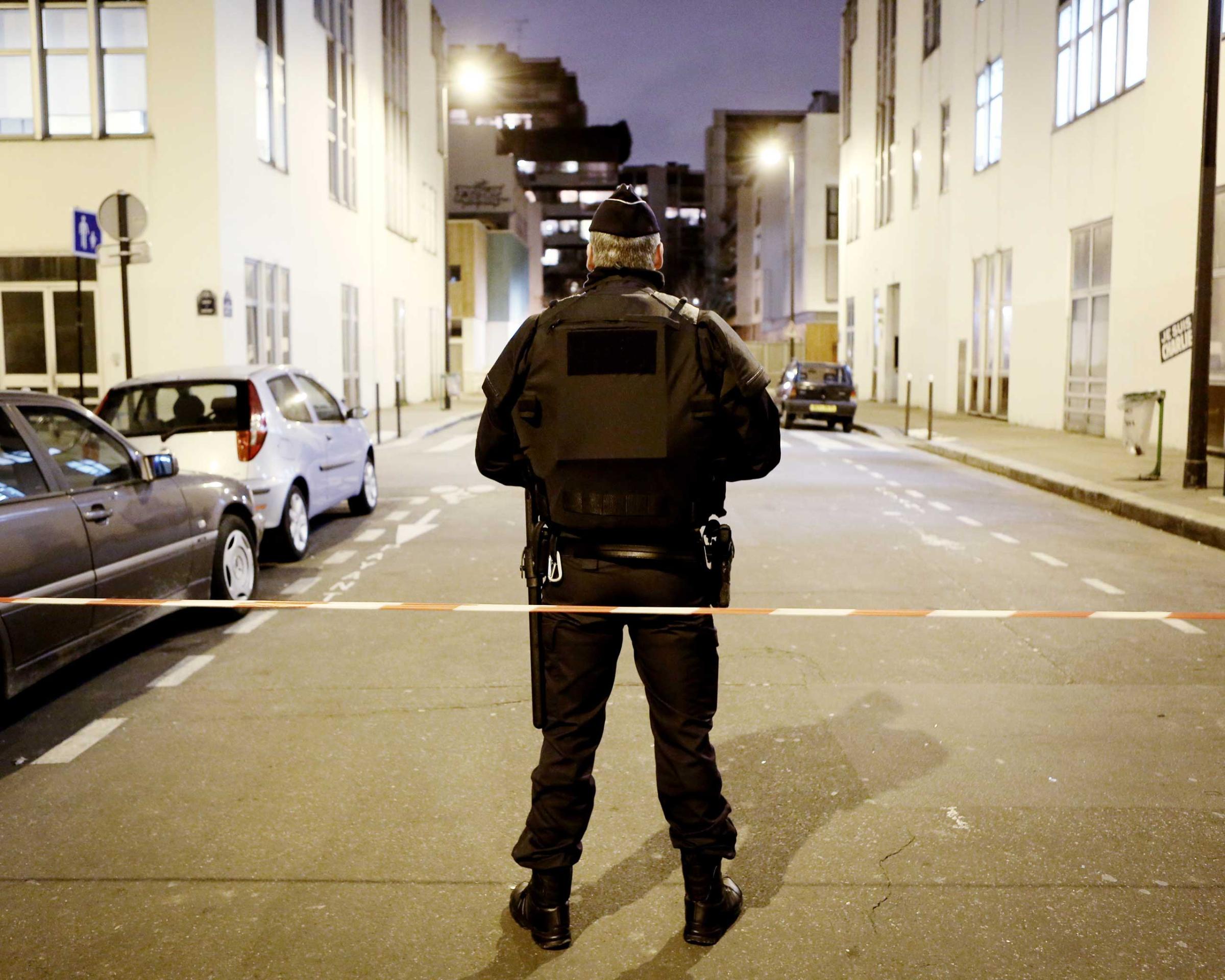
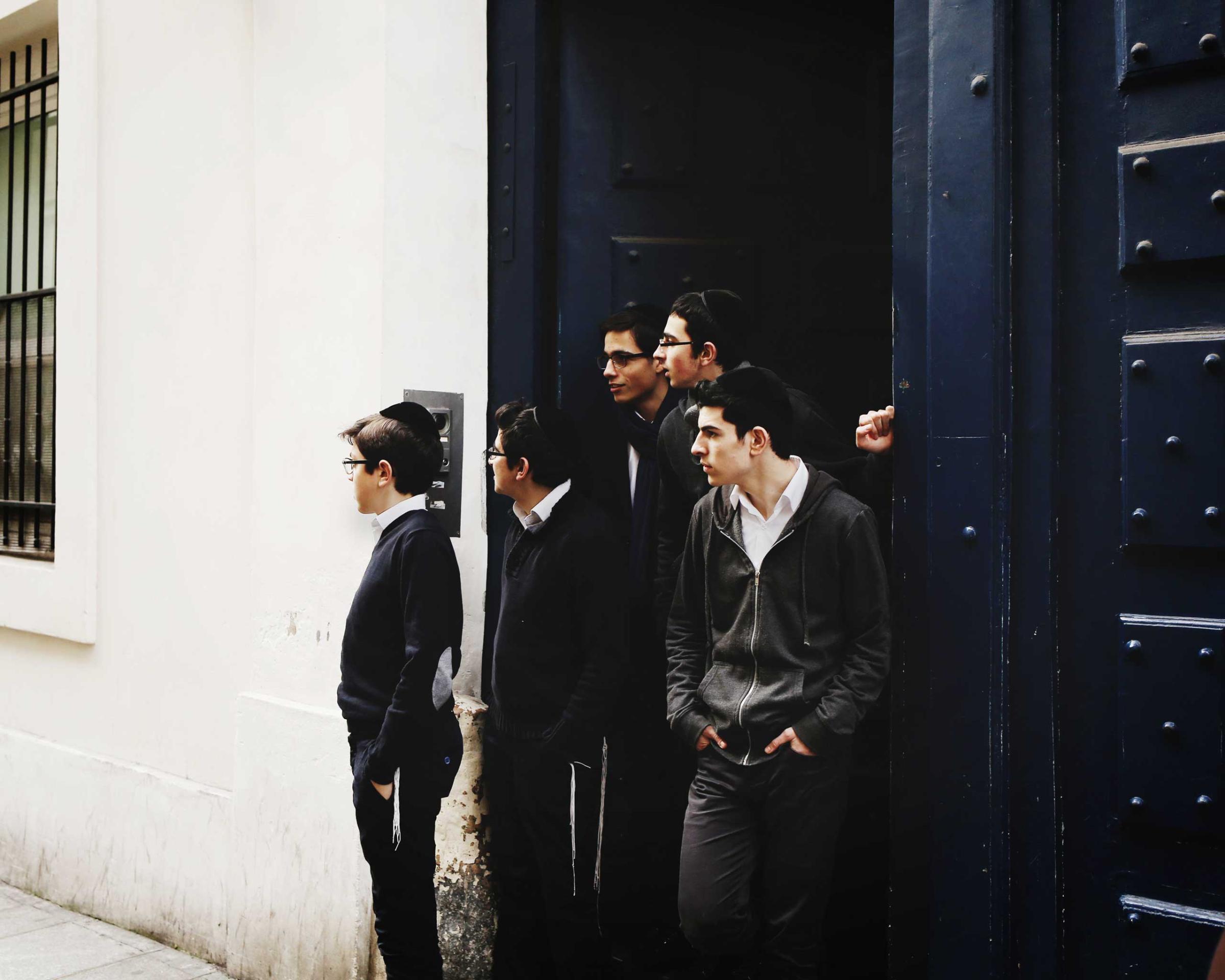
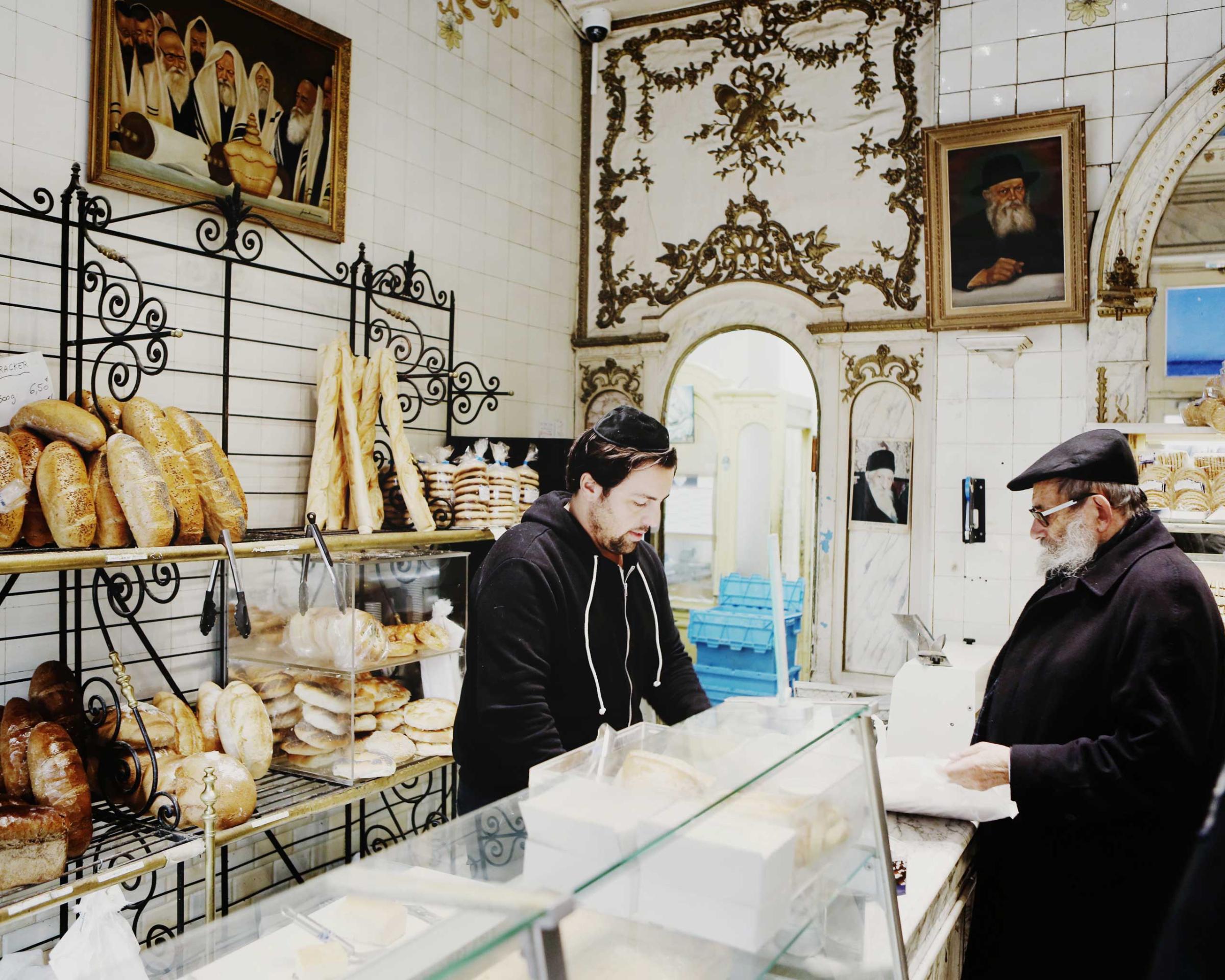
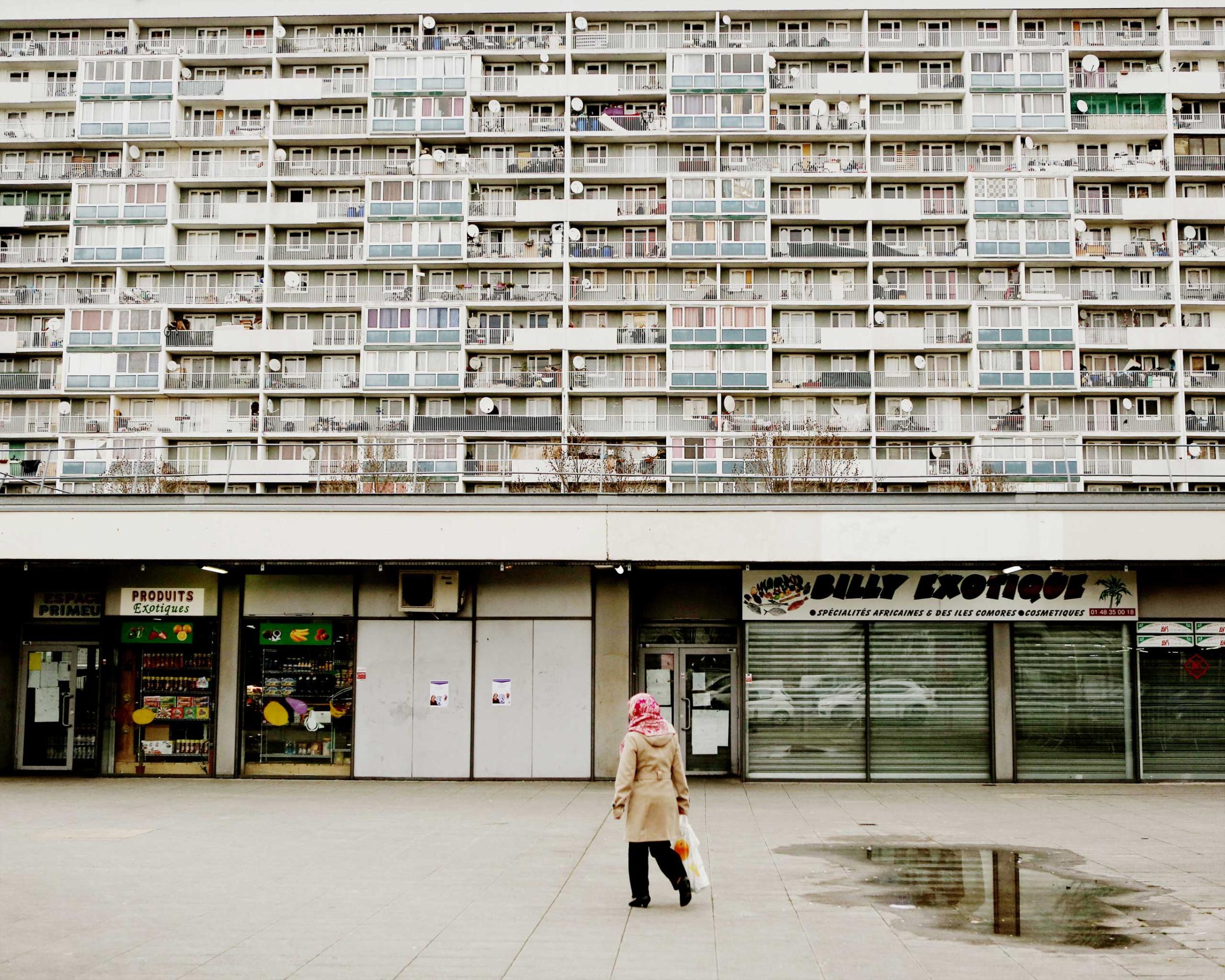
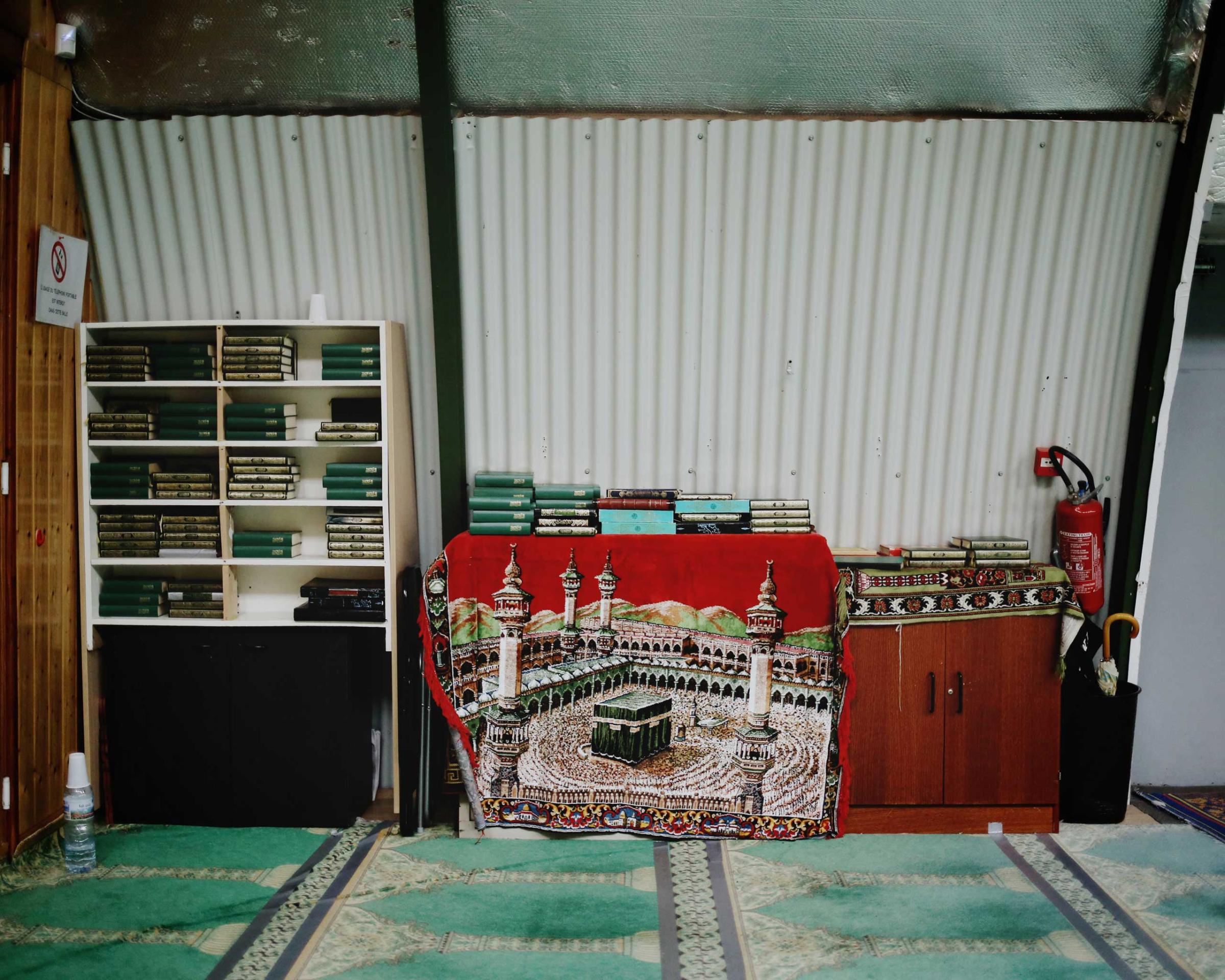
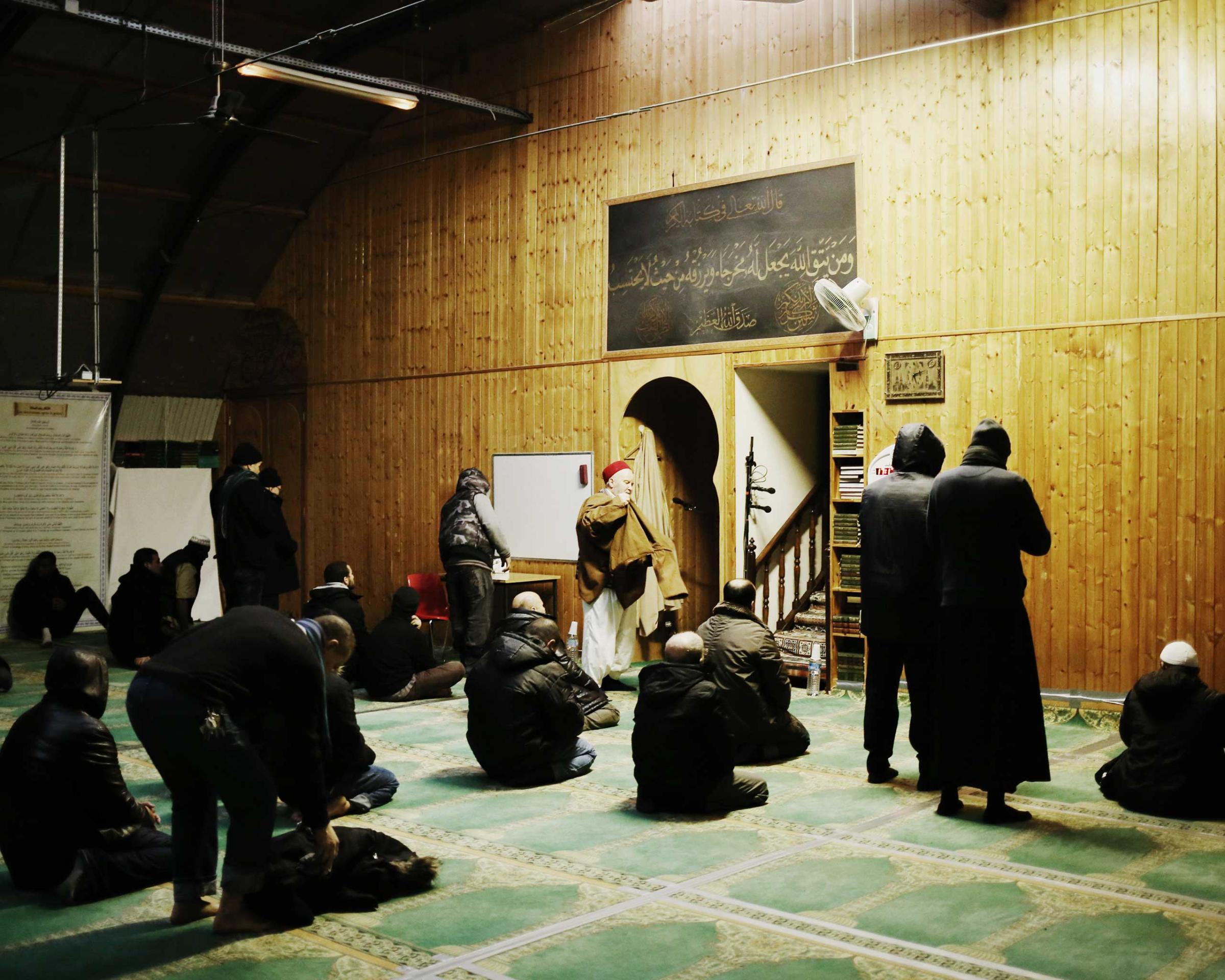
If the Isaksens aren’t considering following suit, it’s at least partly because, historically, Denmark has been the exception in Europe, protecting its Jews where other countries failed. During World War II, it transported nearly the entire community to safety in neutral Sweden when the Germans invaded.
But in recent years, even Denmark has seen a rise in anti-Semitic attacks. Cans painted with the label of Zyklon B, a chemical used to produce gas in Nazi extermination camps during World War II, were left on the fence of the Copenhagen synagogue in 2013. That was just one of 43 anti-Semitic incidents that occurred that year according to the Jewish community in Denmark’s security unit. “It seems to be getting worse and worse,” says Isaksen, noting that he himself had been assaulted on the street. “Certainly we’re afraid.”
Still, he and his wife were grateful for the outpouring of support from other Danes. Peter Krogell was one of them. A minister at the German Lutheran church on the same street as the synagogue, Krogell brought his two boys to lay tulips outside the temple. “We came because we wanted to show our unity,” he said. “And because as Danes we believe that the only way to fight terror is with freedom and democracy. And love.” Throughout Europe, 1.1 million Jews are hoping that’s enough.
— With reporting by Naina Bajekal / London
More Must-Reads from TIME
- How Donald Trump Won
- The Best Inventions of 2024
- Why Sleep Is the Key to Living Longer
- Robert Zemeckis Just Wants to Move You
- How to Break 8 Toxic Communication Habits
- Nicola Coughlan Bet on Herself—And Won
- Why Vinegar Is So Good for You
- Meet TIME's Newest Class of Next Generation Leaders
Contact us at letters@time.com